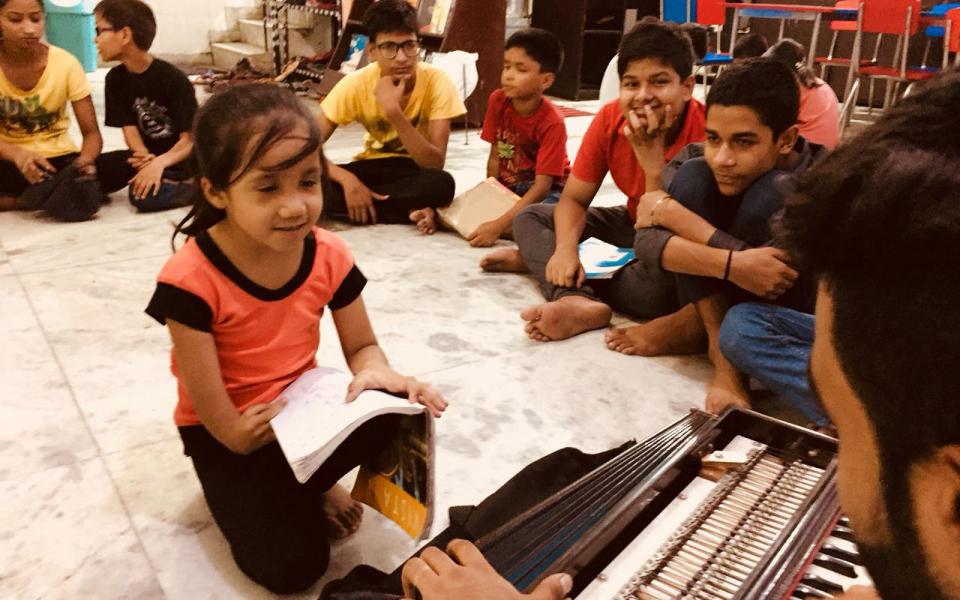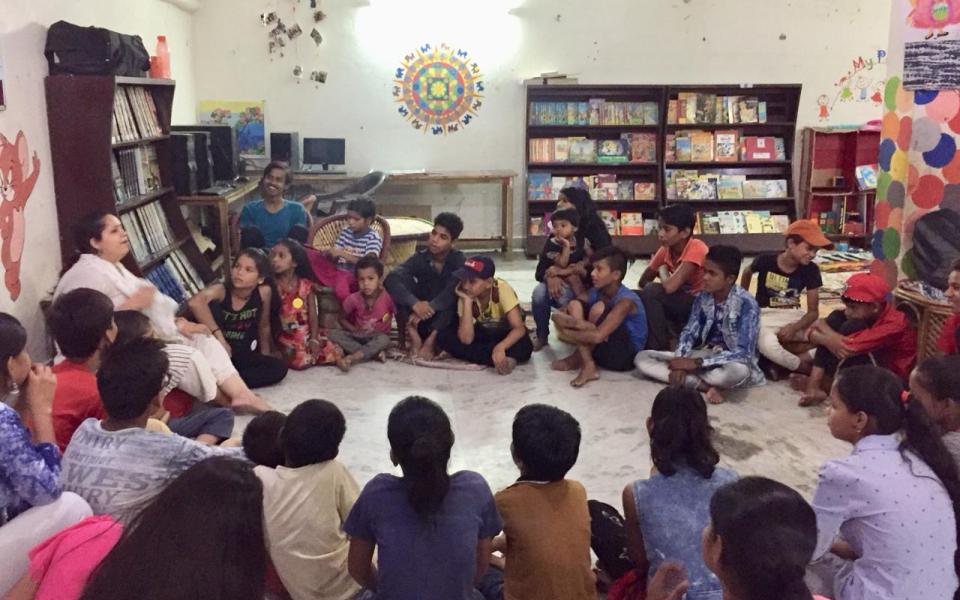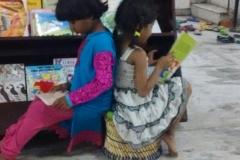
Written by Atharva Mehendale, Community Project Manager, URI-North India & Afghanistan
Education for all, at all levels, and at all ages is an instrument to bring about a transformational change in the society. It has been identified as one of the major agencies of socialisation; with teachers and educational institutions acting as socialising agents. It can bring about an attitude change against orthodoxy, obscurantism, caste-class syndrome, religious dogmas and towards accepting a secularist outlook. Besides, it helps in creating the right kind of institutions which in turn assist in changing patterns of group relationships in the society. As such, change in attitude accelerates social change. However, social interventions over time have often revealed that education is not always enough. In low income-spaces and amongst underprivileged communities, where mental health concerns are often pushed under the blanket, it becomes necessary to actively think about mental well-being and emotional healing as indispensable components of the education process. Research shows that social-emotional learning not only improves academic results, but also increases prosocial behaviours (such as kindness, sharing, and empathy), improves student attitudes toward school, and reduces depression and stress among students (Durlak et al., 2011). This is exactly what My Perch, a social organisation in Delhi NCR has been striving to do.
Established in January 2015, the organisation has been working to create a safe space where kids can share their stories, experiences and can express themselves through music, dance, arts & crafts. It runs a space in Sector 49 Noida close to the Barola community - which houses a number of daily wage labourers, migrants and domestic workers. The space has designated corners dedicated to arts & crafts, music, dance, story-telling and cooking. It lets children explore their interests and creates a platform for them to express themselves. The centre is for the children and by the children; which means that it is solely managed by the kids in the presence of My Perch’s centre coordinator. It currently has a membership of 350, with more requests coming in each day. Ms. Kamya, who is the founder of My Perch believes that the space allows children to heal themselves. In order to supplement these activities, My Perch also regularly conducts workshops on gender, sexuality, emotional healing and other social issues. Furthermore, in order to make the kids feel more included in the process, it allows children above the age of 18 who’ve been with My Perch for a while to take up key responsibilities of the centre against a stipend every month.

My Perch’s association with URI has been a rather recent one. This association has helped the My Perch in engaging the children into active discussions around religion as a binding force and the importance of social inclusion in the education process. A program that URI ran with My Perch gave the children an opportunity to connect with children from a school in Afghanistan and exchange ideas. Ms. Kamya considers social inclusion to be a crucial catalyst in the process of bringing about a transformational shift in the society. My Perch has been contributing its share to social inclusion by tirelessly working for communities living on the fringes of the city. A more inclusive model of social development requires policy discussions to actively involve the interests of the informality – the ‘fringes’ of the society. Informal settlements in a city are prone to health risks, livelihood risks, discrimination, environmental hazards and government risks. The role that My Perch plays is instrumental in maximising the impact that education has in such spaces. In the next few years, it aims to actively involve parents in this process, in order to develop a conducive environment for children back home. It has been striving to bring about a change in the mindset of the society, government authorities and parents about the importance of social-emotional wellbeing in the education process. What we can hope in the future is that kids around the country have access to a similar ‘perch’!
About the author: Atharva works as Community Project Manager with the North India and Afghanistan Zone of United Religions Initiative. He also works as a Teaching and Research Fellow with the O.P. Jindal Global University, Delhi NCR. He holds a Master of Arts (M.A.) in International Affairs. His research work focuses on migration and mobility, urban studies, labour, identity, and development. He can be reached at [email protected].

